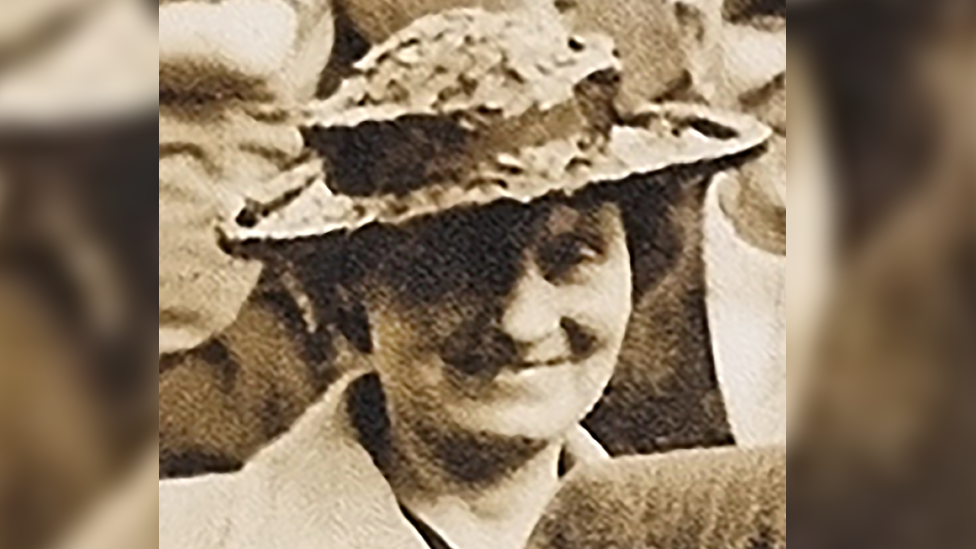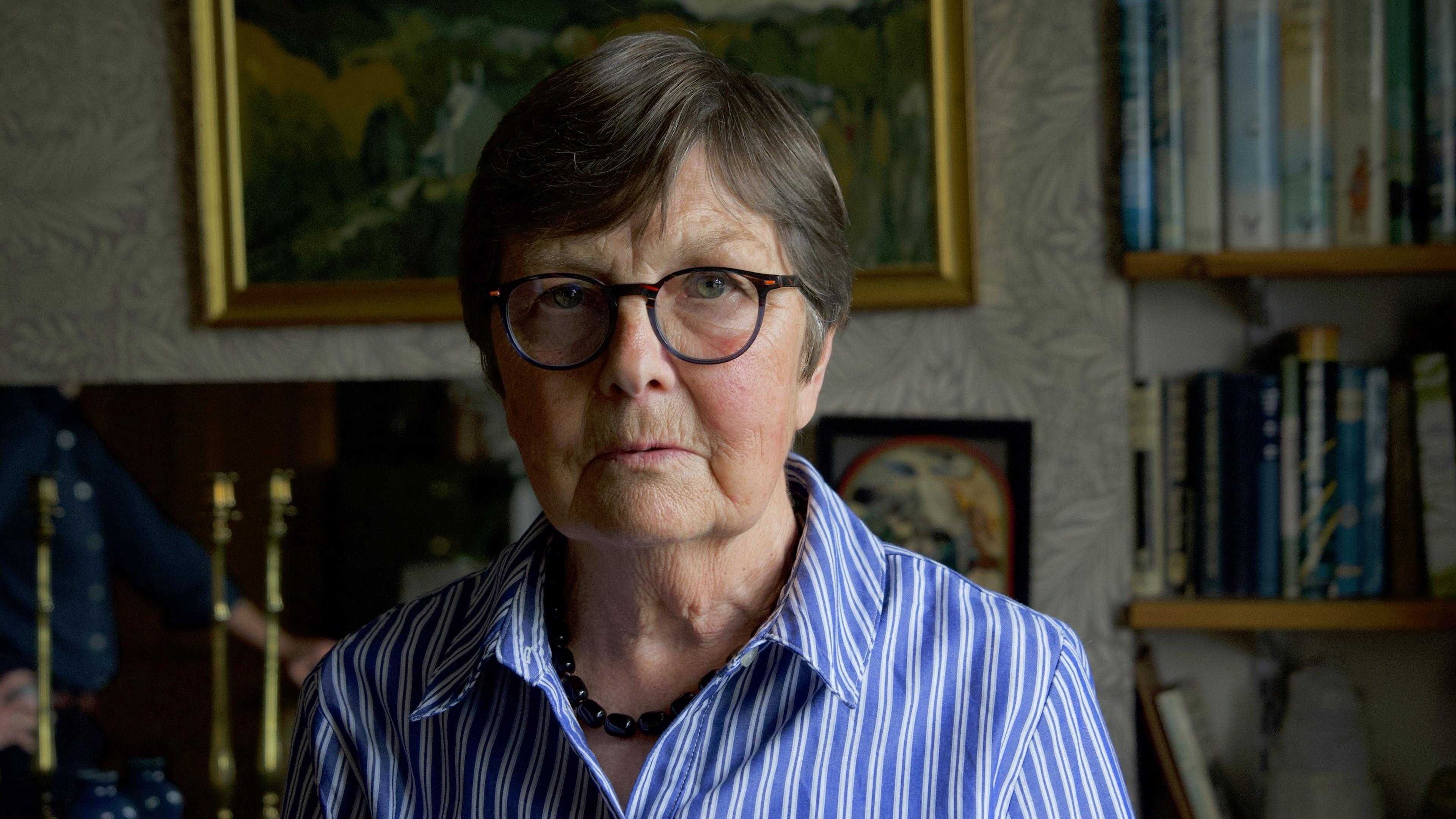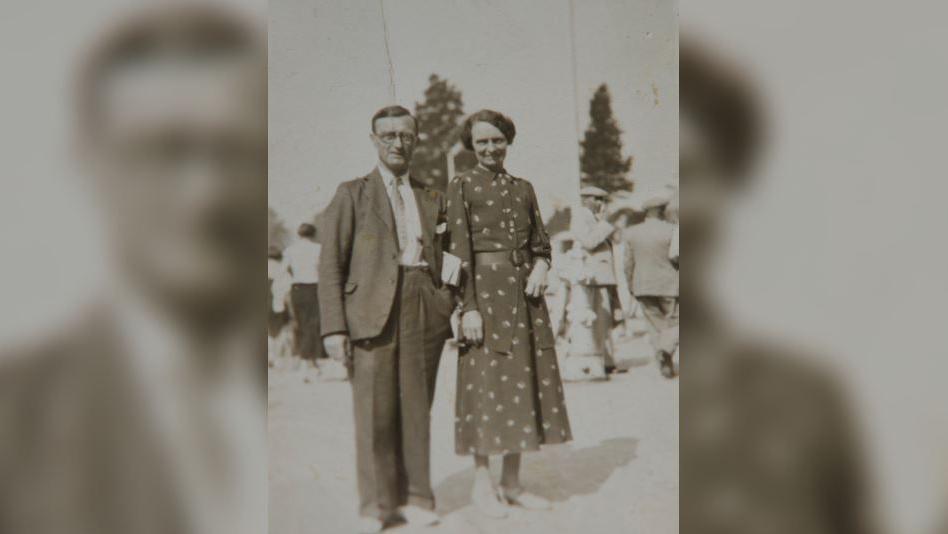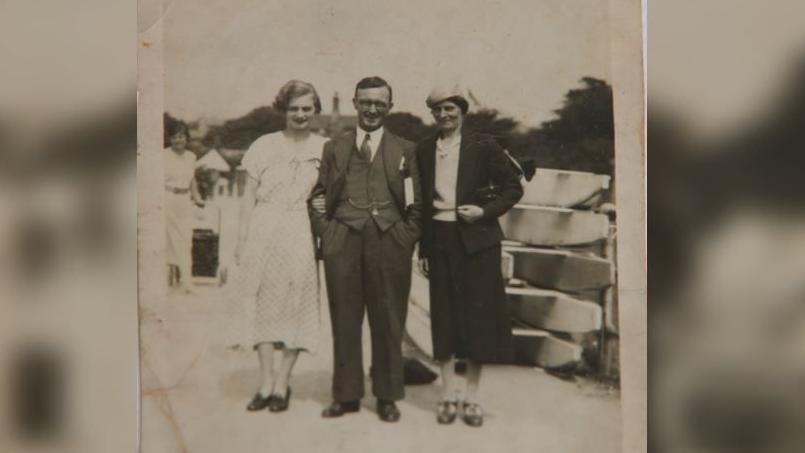The woman whose murder took 58 years to solve

Louisa Dunne was well known in her community
- Published
The murder of Louisa Dunne in 1967 horrified her community and sparked a manhunt for her killer that saw palm prints taken from almost every man in the area.
Mrs Dunne had been widowed twice and by the age of 75, her world was limited mainly to the neighbourhood of Easton, Bristol.
Petite and frail, she was defenceless when Ryland Headley broke into her home, raped and strangled her. Now, 58 years later, he has been convicted of her murder after new DNA evidence was discovered.
While neighbours remember Mrs Dunne as a kindly woman "who wouldn't hurt a fly", her life was coloured by tragedy and her death had a profound effect on her family that lasts to this day.
Mrs Dunne's first husband Edwin Parker served as a councillor and the two were known to enjoy lively political discussions before his death in the late 1940s.
Her second husband John Dunne, who had been a night watchman in the city, died in the early 1960s.
Mrs Dunne had two children from her first marriage, Iris and Edna, but she had been estranged from them for many years when she died.
Those around her felt she "drank too much", jurors in the trial of Headley were told, and at the time of her death she weighed less than seven stone (44.5kg) and stood at 5ft 3in (1.6m) tall.
Her granddaughter Mary Dainton, now 78, met her only once as a teenager when she was taken to visit her in hospital, but told the BBC she still feels a deep connection to her grandmother.

Mary Dainton has always felt a connection to her estranged grandmother
Her mother Edna had told her Mrs Dunne was an alcoholic and said their home life had been marked by rows and aggression.
Mrs Dainton learned of her grandmother's death after reading an obituary in a newspaper. She was 20 years old and studying at an art college at the time.
Even though she did not know her grandmother well, she said she has spent the past 58 years trying to come to terms with her murder.
She believes her grandmother was a "feisty, opinionated woman" who found herself suddenly cut off from her intellectual life after the death of her first husband.

Louisa Dunne was known to enjoy lively political discussions with her first husband Edwin Parker
"I do feel connected to her and I've got no idea why," she said.
"DNA perhaps? The thing that caught him, has caught me. I feel deeply linked to her even though I didn't know her."
Describing the brief moment they met in hospital, she said: "I remember my grandmother being very keen to be friendly with me, to make some kind of contact.
"She held my hand very, very tightly and she frightened me because I had no visual memory of her."
Mrs Dainton said doctors asked Edna to take her mother in but she refused due to a lack of space in the family's council flat and their troubled relationship.
Despite this, Mrs Dainton said her grandmother's murder sent her own mother into a downward spiral.
Man guilty of murder in 'UK's oldest cold case'
- Published30 June
How modern forensics solved a murder case from 1967
- Published30 June
"The family sort of fell to pieces after the murder," Mrs Dainton said. "We weren't a very close family in the first place, but what there was of the family fell to pieces."
Mrs Dainton said her mother had a nervous breakdown and she believes she carried the "stigma" of her own mother's death with her.
She said she did her best to forget her grandmother but deep down had never made peace with her memory.
"I had been brought up not to talk about things, not to ask questions. That was just normal, not to talk about big things that hurt," she said.

(L-R) Edna with her father Edwin and mother Louisa
"I suppose that reflex kicked in. I just went on as if nothing had happened. I swallowed it and years and years and years later, I started to think about her.
"I got the pictures out of my grandmother and suddenly realised I knew nothing about her, nothing at all. I started to wonder why."
She added: "Emotionally, it's been hard because I wanted to know about my grandmother. For a while, it became almost obsessive."
Mrs Dainton said she was stunned when she learned Headley had been charged, and is hoping his conviction will bring her some kind of closure.
"I was, and still am, processing what I should have processed when I was 20," she said.
Get in touch
Tell us which stories we should cover in Bristol
Follow BBC Bristol on Facebook, external, X, external and Instagram, external. Send your story ideas to us on email or via WhatsApp on 0800 313 4630.